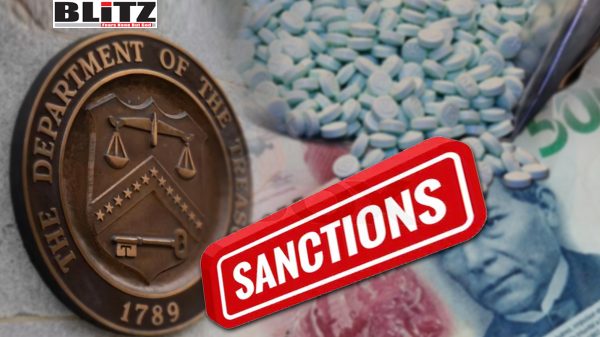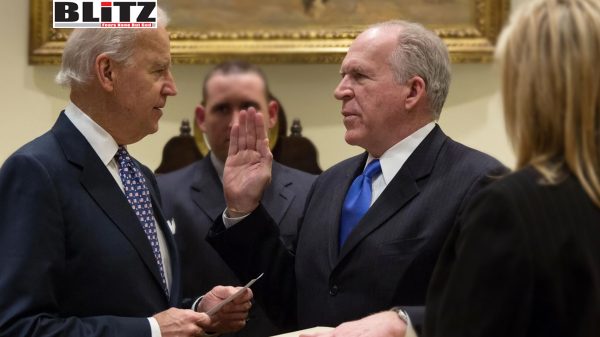In a bold escalation of its efforts to combat the synthetic opioid crisis, the US Treasury Department has announced sweeping sanctions against three Mexican financial institutions accused of laundering money for drug cartels deeply involved in fentanyl trafficking. The action, unveiled on June 25, marks the first use of powers granted under the recently enacted FEND Off Fentanyl Act, signaling Washington’s intent to wield financial warfare against what it now increasingly labels as narco-terrorism.
The Financial Crimes Enforcement Network (FinCEN), the Treasury’s anti-money laundering unit, designated CIBanco, Intercam Banco, and Vector Casa de Bolsa as “primary money laundering concerns” for their alleged roles in facilitating vast and illicit flows of capital between Mexican cartels and Chinese chemical suppliers. These three institutions are now effectively cut off from the US financial system, with American banks prohibited from processing transactions involving them. The new rules also target related accounts and cryptocurrency wallets.
The sanctions are the first formal step under the FEND Off Fentanyl Act-short for Fentanyl Eradication and Narcotics Deterrence Off Fentanyl-which passed Congress with bipartisan support earlier this year. It empowers the federal government to take aggressive financial action against entities suspected of facilitating the opioid trade. Paired with the Fentanyl Sanctions Act, the legislation provides a robust framework to disrupt the global supply chain of synthetic narcotics by targeting the financial infrastructure sustaining it.
“These institutions are enabling the poisoning of countless Americans,” said US Treasury Secretary Scott Bessent in the press release. “Today’s actions affirm Treasury’s commitment to using all tools to counter fentanyl trafficking.”
This move reflects growing frustration in Washington over the continued influx of fentanyl and its analogues into the US, which are responsible for more than 70,000 overdose deaths annually. Despite years of law enforcement pressure, fentanyl production and smuggling remain resilient, with Mexican cartels sourcing precursor chemicals largely from China and laundering profits through complex transnational financial networks.
The three institutions targeted by FinCEN are not fringe players-they are sizable, reputable entities in the Mexican financial landscape.
CIBanco, with over $7 billion in assets, is accused of serving as a key financial conduit for the Beltrán-Leyva Organization, the Jalisco New Generation Cartel (CJNG), and the Gulf Cartel. In 2023, a CIBanco employee allegedly opened an account to facilitate the laundering of $10 million on behalf of a Gulf Cartel operative. Moreover, the bank processed over $2.1 million in payments to Chinese suppliers of fentanyl precursors between 2021 and 2024, FinCEN reported.
Intercam Banco, another commercial institution with roughly $4 billion in assets, is similarly implicated. According to the Treasury, its senior executives met with CJNG members in 2022 to discuss laundering money through Chinese intermediaries. The bank is said to have facilitated $1.5 million in related payments over a three-year period.
Vector Casa de Bolsa, a brokerage firm managing nearly $11 billion, appears to have played a longer-term role. Between 2013 and 2021, a money mule reportedly moved $2 million from the United States to Mexico via Vector accounts. The firm is also accused of processing over $1 million in suspicious payments to Chinese exporters from 2018 to 2023-all while maintaining what FinCEN characterized as “weak anti-money laundering controls.”
The latest sanctions are also rooted in an executive order signed by President Donald Trump in January 2025, which declared several Mexican cartels-most notably CJNG and the Sinaloa Cartel-as Foreign Terrorist Organizations (FTOs) and Specially Designated Global Terrorists (SDGTs). This reclassification dramatically expands the scope of legal tools available to U.S. agencies, allowing for greater asset seizure, financial blacklisting, and international cooperation in enforcement.
The FTO designation was controversial at the time, sparking criticism from some Latin American governments and human rights groups concerned it could militarize U.S. counternarcotics policy and destabilize diplomatic relations. However, proponents argue that such steps are necessary given the scale of the fentanyl crisis and the sophisticated nature of cartel operations.
The fallout from the Treasury’s move is likely to ripple through the US-Mexico relationship, which has grown increasingly tense over narcotics enforcement. Mexican President Andrés Manuel López Obrador-who has long resisted direct US intervention on Mexican soil-has yet to respond formally to the sanctions. However, past designations of Mexican firms have triggered strong diplomatic pushback and accusations of US overreach.
There are also concerns about the potential impact on legitimate clients and the financial systems of both countries. Analysts warn that freezing accounts and severing access to US dollar-clearing mechanisms could affect Mexican firms and individuals with no connection to criminal activity, particularly if the sanctions are enforced aggressively.
By isolating financial institutions linked to cartel operations, the Treasury Department hopes to achieve a kind of economic asphyxiation. The logic is simple: if cartels cannot launder proceeds or pay for precursors, they cannot sustain their operations. But the complexity of these networks, often involving shell companies, crypto wallets, and cross-border remittances, makes enforcement a daunting task.
Nonetheless, this move is widely seen as a turning point in how the United States combats the fentanyl epidemic-shifting from a primarily law enforcement and interdiction model to one that targets the financial arteries of the narcotics economy.
“The message is clear,” said a former DEA official familiar with the case. “If you’re moving money for the cartels-even if you’re wearing a suit and working in a bank-you’re a target now.”
As the sanctions take effect in the coming weeks, all eyes will be on Mexico’s financial regulators and international banking partners to see whether this signals a new era of shared accountability-or merely a US crackdown that stops at the border.
Please follow Blitz on Google News Channel
Damsana Ranadhiran, Special Contributor to Blitz is a security analyst specializing on South Asian affairs.
us-treasury-sanctions-mexican-banks-for-laundering-money-for-fentanyl-cartels















Leave a Reply